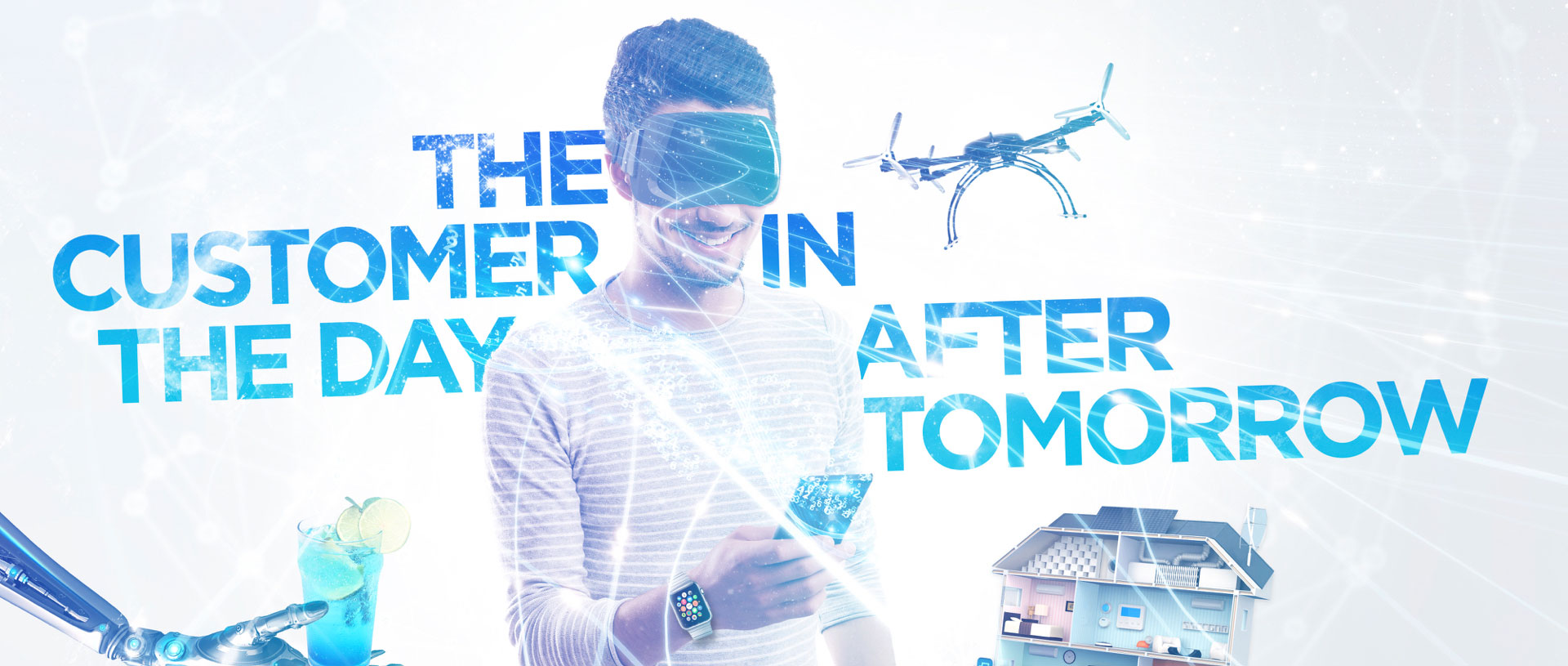The future of strategy is a strategy fully focussed on customers.
In traditional strategic thinking there were three choices: either you focussed on being the product champion, the king of costs or the servant to a customer. Today customers want to be the king. Their expectations have risen and that is because of the digital (r)evolution.
The Day After Tomorrow
In his latest book, Steven Van Belleghem writes about the Customers – The Day after Tomorrow. To fully understand the title you must know that this is a book that follows the book by Peter Hinssen, The Day After Tomorrow. This book describes the innovations that organisations face and how they have cope to stay relevant in this VUCA world. One of the basic ideas is that most organisations are so immersed in dealing with the challenges of today and cleaning up the shit of yesterday, there is no time to prepare tomorrow let alone the day after tomorrow. If we want to prepare for the future and be able to create value in the future, we must be prepared for the further future, even when that future is uncertain.
Customers – The Day after Tomorrow describes how to attract customers in a world of artificial intelligence, bots and automation. It’s especially artificial intelligence that will contribute to a customer driven organisation, next to an efficient process, a customer-driven culture and a feedback-driven management.
Artificial Intelligence for Customers
AI will enable organisations to provide “magical” experiences to customers through sensors, data-analytics,invisible robots, machine learning and ubiquitous wifi. These technologies will automate the daily life, offer faster than real-time service and achieve hyper-personalisation.
When I was reading this, I was asking myself the question: do we really want this? But the issue is that it’s already there. And the question is not so much about how we will implement these technologies, but how we are going to deal with them. And two elements are important: trust and ethics.
Trust
According to Van Belleghem we will be willing to outsource certain aspects of our lives to machines. The only condition is that the technology must function well. And so in the beginning, people will remain cautious. Once they see that it works (and the early bugs are gone) people tend to embrace technologies. Artificial Intelligence will be so present in our lives that we will trust those machines more than we will trust other human beings.
For some this might be scary. Especially when machines get into unsupervised learning. Unsupervised learning occurs when computers analyse large amounts of data without having a clear focus at the start. So it looks for patterns. When the devices of Amazon and Google not only respond to oral commands but also listen to conversations and learn from them, this is clearly unsupervised learning as opposed to supervised learning.
Organisations can benefit from these technologies to influence buyers through personalisation based on data patterns it has obtained through various channels. Spooky? It already happens. Algorithms decide on what we get to see on social media and through advertising channels. Artificial Intelligence will make advertising less interrupting but more immersed in an overall experience. Van Belleghem talks about weapons of mass influence. And he shifts the focus from resisting artificial intelligence, to embracing it and deciding on how we will deal with it. He also states that the current privacy discussion is not the right one. It’s not about cookies and commercialisation, it’s about how artificial intelligence will change our lives.
Ethics
I believe that ethics will be one of the most important fields in the future. How we will deal with the possibilities of technology in a digital world is a necessary debate. And I am glad that Van Belleghem does not avoid this debate in his book. This makes the book valuable. It’s not a glorification of the blessings of new technologies. I read that in his book too. But he also gives enough handles to think about the progress.
It’s not about technology. It’s about how we deal with it.
A Wake-up Call
This book is ideal for people who want to know how to use technologies to stay relevant for customers in a changing world. To many it might be a wake-up call as it gives a concentrated view on things. But Van Belleghem visited hundreds of companies to write this book. And through this book you can discover a world of opportunities, and become aware of the risks. The debate is not about the technology. It’s about how we deal with it.
Recommended by hrchitects.net

Van Belleghem, Steven.
Customers. The Day After Tomorrow.
Tielt, Lannoo
ISBN 978 90 825 4224 0





